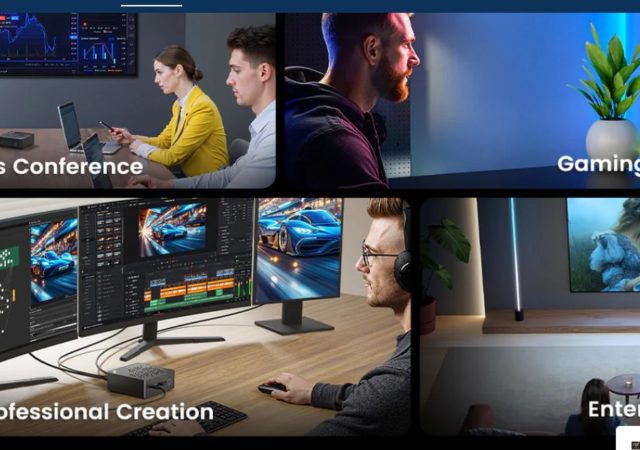Are you leading the cognitive travel
revolution?
revolution?
By: Kenny Hay, Director Cloud, IBM ASEAN
“I would like to book a kid-friendly hotel in London
which is close to the entertainment park and has a good view of the city.”
which is close to the entertainment park and has a good view of the city.”
“I am looking for a hotel in San Francisco which looks
over the beach and is near the main street.”
over the beach and is near the main street.”
Yes, it’s that time of the year where travel bookings
spike, and travel consultants are stretched to their limits in meeting flight
and accommodation requests. Travelers today have access to more hotels than
ever before, but they are often overwhelmed by too many choices, limited in
their ability to find the perfect room, and compelled to check multiple sites
before making a decision.
spike, and travel consultants are stretched to their limits in meeting flight
and accommodation requests. Travelers today have access to more hotels than
ever before, but they are often overwhelmed by too many choices, limited in
their ability to find the perfect room, and compelled to check multiple sites
before making a decision.
Did you know that consumers visit at least 38 sites
before making a booking?[1]
81% of consumers also typically abandon their online bookings midway through,
citing reasons which include long and complicated booking processes, payment
issues, technical issues and the need to compare prices elsewhere.[2]
before making a booking?[1]
81% of consumers also typically abandon their online bookings midway through,
citing reasons which include long and complicated booking processes, payment
issues, technical issues and the need to compare prices elsewhere.[2]
You can’t
help but wonder if more can be done to make travel bookings easier for your
customers. According to the cognitive study by the IBM Institute for Business
Value, Beyond Bots and Robots: Exploring the
Unrealized Potential of Cognitive Computing in the Travel Industry, 36 percent of cognitive travel
leaders expect to have four or more cognitive projects underway in the next two
years, compared with just 18 percent of all other travel industry survey
respondents. The study also found that travel companies can create cognitive
programs that improve the travel experience, streamline travel operations, or both.
help but wonder if more can be done to make travel bookings easier for your
customers. According to the cognitive study by the IBM Institute for Business
Value, Beyond Bots and Robots: Exploring the
Unrealized Potential of Cognitive Computing in the Travel Industry, 36 percent of cognitive travel
leaders expect to have four or more cognitive projects underway in the next two
years, compared with just 18 percent of all other travel industry survey
respondents. The study also found that travel companies can create cognitive
programs that improve the travel experience, streamline travel operations, or both.
For the most part, travel companies are already
leveraging cognitive solutions in the form of chatbots to provide interactive
support functions.
leveraging cognitive solutions in the form of chatbots to provide interactive
support functions.
Take ZUMATA for example – a travel technology company
that is using Watson to enhance the booking
experience for customers. By training Watson with ZUMATA’s own database
including an inventory of hotels, ZUMATA can recommend hotels that match customers’
requirements. Watson’s machine learning and natural language features also
enable ZUMATA to process massive amounts of
unstructured data including reviews, blogs, news articles, press releases,
images, and more, as well as accurately determine the intent of
customers’ questions and quickly return high-confidence answers. As a result, ZUMATA was recently featured by
Disruptor Daily as one of the top 10 companies disrupting the travel industry
in 2017.
that is using Watson to enhance the booking
experience for customers. By training Watson with ZUMATA’s own database
including an inventory of hotels, ZUMATA can recommend hotels that match customers’
requirements. Watson’s machine learning and natural language features also
enable ZUMATA to process massive amounts of
unstructured data including reviews, blogs, news articles, press releases,
images, and more, as well as accurately determine the intent of
customers’ questions and quickly return high-confidence answers. As a result, ZUMATA was recently featured by
Disruptor Daily as one of the top 10 companies disrupting the travel industry
in 2017.
But it’s not just the travel companies that are
embarking on the cognitive technology. Travel insurance companies too are creating
similar cognitive-driven chatbots that can respond to customer queries quickly
and more importantly, provide the right answers. Those I have worked with
shared that their customers now experience shorter waiting times, and service
call durations have shortened from 20 to 30 minutes to under three minutes.
embarking on the cognitive technology. Travel insurance companies too are creating
similar cognitive-driven chatbots that can respond to customer queries quickly
and more importantly, provide the right answers. Those I have worked with
shared that their customers now experience shorter waiting times, and service
call durations have shortened from 20 to 30 minutes to under three minutes.
That said, not all travel companies are aggressively
leading the way in cognitive computing. Some may prefer to adopt a wait-and-see
approach to this rapidly evolving technology, only implementing proven
solutions thoroughly tested by other companies.
leading the way in cognitive computing. Some may prefer to adopt a wait-and-see
approach to this rapidly evolving technology, only implementing proven
solutions thoroughly tested by other companies.
The question is, do you want to become a leader in the
cognitive travel world, or are you content with conducting small-scale,
low-risk projects?
cognitive travel world, or are you content with conducting small-scale,
low-risk projects?
Travel executives who believe their
companies can get more from cognitive computing will do well by asking themselves
three fundamental questions:
companies can get more from cognitive computing will do well by asking themselves
three fundamental questions:
- What aspects in my business can
I make cognitive? - Do I have a
strategy in place to take my business cognitive? - Do I have skills
to start my cognitive journey?
While
we don’t know when cognitive computing will fully proliferate throughout the
travel industry, we can be sure that it’s only a matter of time before more
businesses explore the potential it has to transform the travel experience.
we don’t know when cognitive computing will fully proliferate throughout the
travel industry, we can be sure that it’s only a matter of time before more
businesses explore the potential it has to transform the travel experience.
The
question is, will you take the lead, or play it safe?
question is, will you take the lead, or play it safe?
For the LATEST tech updates,
FOLLOW us on our Twitter
LIKE us on our FaceBook
SUBSCRIBE to us on our YouTube Channel!






